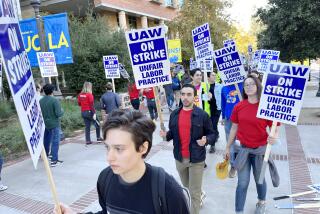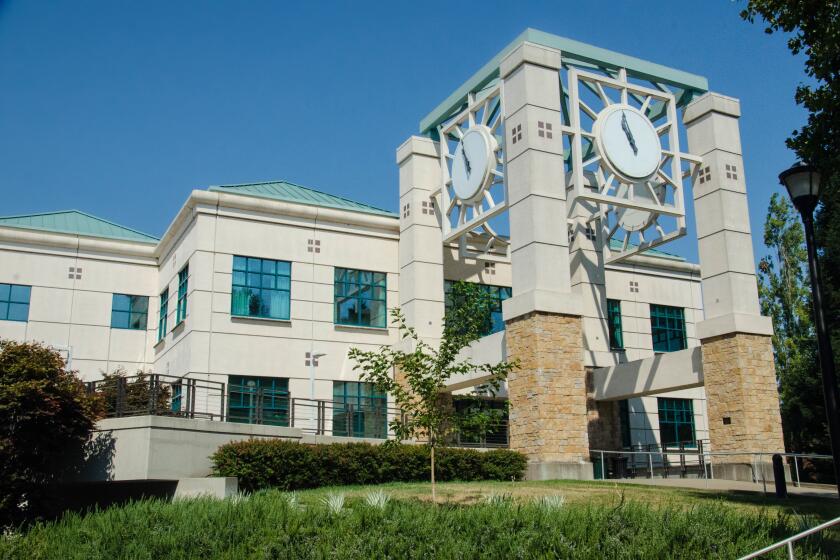Mine Passes Clean Air Tests
A Lockwood Valley mining operator found to be releasing a gas that neighbors said made them sick is back in compliance after passing recent air quality tests, county regulators said.
Pacific Custom Materials, which operates the clay mine in northeast Ventura County, “has been working diligently to reduce emissions,” said Dick Baldwin, executive director of the county’s Air Pollution Control District.
“They’ve been communicating with us, they’ve been doing testing, they’ve been working on using less diesel, all things that have been progressively reducing emissions,” he said.
But area residents are skeptical of the district’s finding.
“We don’t buy it,” said Robert J. Mandell, attorney for a group of residents who have filed a civil lawsuit against Pacific Custom. “Why didn’t they do this a few years ago? I’m curious as to how they’re making their product now if diesel was so integral and important to the process.”
Lockwood Valley neighbors have complained for years that the mine is responsible for their nausea, painful breathing and skin irritation. They say they don’t trust the mine to stick to its practices of recent months without continued intense regulatory scrutiny.
A July 20 air quality test showed the plant had released 90% less sulfur dioxide than prior to establishment of recent temporary pollution controls. A similar test by the California Air Resources Board confirmed that finding, Baldwin said.
The Air Pollution Control District also found the mine had reduced its use of diesel fuel by 75%. Sulfur dioxide, produced by the burning of diesel fuel, can cause breathing problems.
Mandell said the district’s finding does not change the situation for those who have lived next to the plant for years.
A group of 26 residents filed the lawsuit against Pacific Custom last year, alleging the mining operator emits excessive fumes and dust and has failed to notify the community of potential health risks.
Resident Edward Gertner and others are concerned that because the mine is so remote it is difficult for inspectors to verify residents’ complaints. Also, a nuisance violation is not triggered until the agency receives a dozen simultaneous complaints, a difficult requirement in a small community.
“What I want to know is, how long are they going to stick to this?” Gertner said of the compliance standards. “How long will it last?”
The air district’s finding allows Pacific Custom to continue with plans to add permanent pollution controls without holding a previously planned public hearing.
In January, the mine agreed to the new measures after a study showed the facility was releasing 1 1/2 times more sulfur dioxide than standards allow. The plant has been using a temporary system to inject lime into its kilns, which helps reduce sulfur dioxide emissions.
At a June meeting, plant neighbors asked officials to postpone a decision to put in permanent controls, saying they had not had adequate notice of the hearing and arguing they did not believe the proposed controls would stem the problem. Baldwin said he can only require what will bring the plant within its permit standards, and that the pollution control district will periodically check to ensure the operator is in compliance.
Pacific Custom, a division of Dallas-based TXI, extracts clay from its mine in Los Padres National Forest, about 20 miles northeast of Ojai, and processes it in kilns at its Lockwood Valley plant for such items as skid-resistant highway surfaces and fireproof roof tiles.
The emissions occur when diesel-soaked clay is superheated in the kilns. Pacific Custom is permitted to use up to 3.2 million gallons of diesel fuel annually.
A Pacific Custom spokesman said until January the company was not aware it was over its limit. He said once Pacific Custom learned of the emissions, it took preventive action.
More to Read
Start your day right
Sign up for Essential California for news, features and recommendations from the L.A. Times and beyond in your inbox six days a week.
You may occasionally receive promotional content from the Los Angeles Times.






